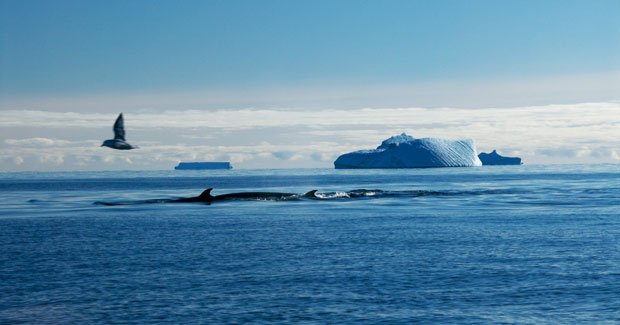Whale mission heads to Antarctica

An international research expedition, launched from New Zealand this week, aims to fill a knowledge gap about whale behaviour in Antarctic waters.
The expedition set off on Tuesday from Wellington aboard New Zealand’s RV Tangaroa, a government research vessel.
“Virtually all the countries involved in whale research in the Southern Ocean are getting together to work on one very large collaboration to answer the important science questions,” says expedition leader Dr Nick Gales.
Little is known about whale behaviour during the summer months in Antarctic waters, adds Nick, who heads the Australian Marine Mammal Centre, based in Hobart, Tasmania.
Much of the knowledge we do have about humpback whales, Antarctic minke whales and blue whales – which are the subject of the study – instead comes from the Southern Hemisphere winter, when they frequent warmer waters to give birth to their calves.
The mission is planned to last for six weeks. During that time, the scientists will use satellite tagging, biopsy sampling, and acoustic and hydrographic surveys to learn more about the marine mammals.
Skin taken from the biopsy samples, will provide material for DNA sampling to study population dynamics. Satellite tags will provide new clues about how the whales move around under the sea ice.
Sea ice is an important part of the whales’ habitat, yet it may diminish with climate change – so learning more about how the whales interact with it is another area of interest. “Very little is known about the ways that whales use sea ice. We do know however that it is an important habitat,” says Nick.
Researchers will collect whale faeces to determine diet and feeding patterns. “Whales defecate near the surface and you will fairly regularly see their faeces,” he says. “They are big orange stains which appear behind the whale as it surfaces. We use a net to collect them.”
“The Southern Ocean Research Partnership is the first truly international, multidisciplinary research collaboration with a focus on improving the conservation of whales,” commented Peter Garrett, Australian Minister for the Environment, at a launch of the mission last week.
“This expedition – the largest of its kind – demonstrates the Government’s position that non-lethal whale research can provide all the information needed to understand and conserve whales,” he said.
The expedition’s findings will be revealed at the International Whaling Commission’s annual meeting, to be held in in Morocco in June 2010.

